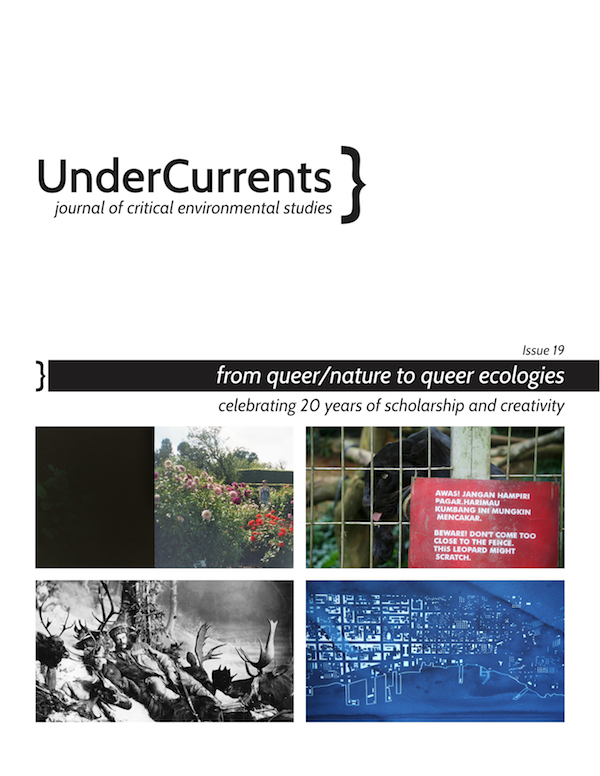Queer Theory for Lichens
DOI:
https://doi.org/10.25071/2292-4736/40249Keywords:
symbiosis, lichens, queer, biology, ecologiesAbstract
An article published in The Quarterly Review of Biology in December 2012 ended with the sentence: “We are all lichens.” The article discusses symbiosis in organisms such as lichens as well as in humans, to argue that humans cannot be thought of as individuals by any biological criteria. In this article I follow this argument and offer a brief naturalcultural history of lichens to illustrate their argument and the work of biologist Lynn Margulis on symbiogenesis. Following this, I ask: if we have never been human – if we are all composites like lichens – then what does this mean for sexuality? I argue that lichens and other symbioses can open up a queer ecological perspective that can help counter the privileging of heteronormativity and sexual reproduction, and that this has consequences for both science and society.Downloads
Published
How to Cite
Issue
Section
License
Copyright (c) 2015 David GriffithsCreators retain copyright for all writings and artwork published in UnderCurrents. New material published as of Volume 21 (2022) is available under a Creative Commons Attribution 4.0 International License (CC-BY 4.0).


